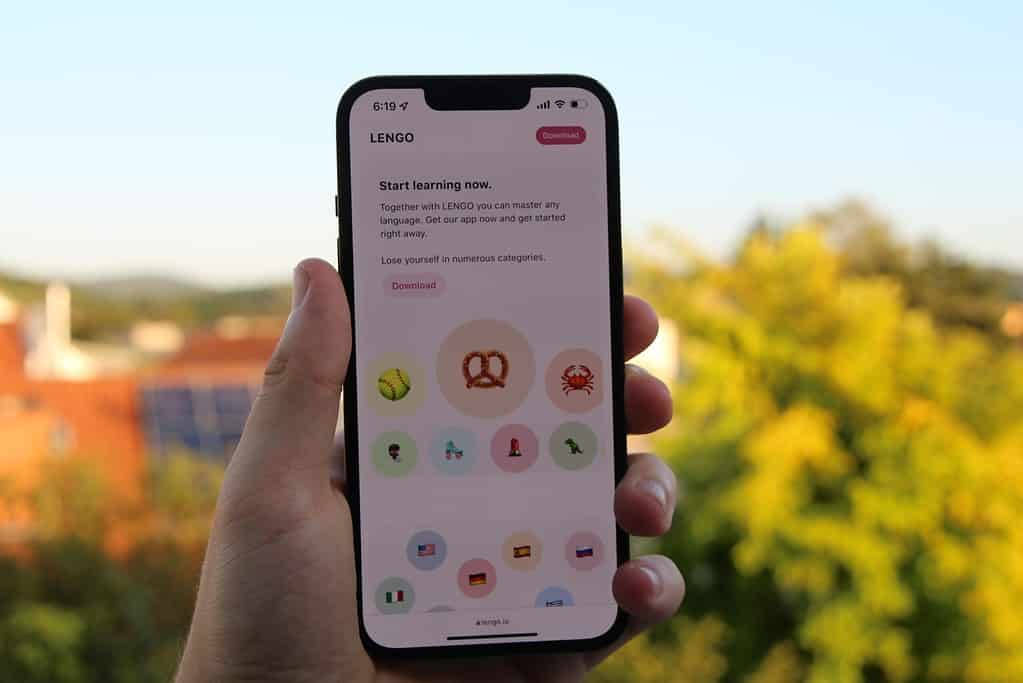In an increasingly interconnected world, the ability to communicate in multiple languages is more valuable than ever. French, known for its rich culture and history, is one of the most widely spoken languages globally. Whether for travel, work, or personal enrichment, enhancing your French speaking skills can open up a plethora of opportunities. This article explores the benefits of learning French, the structure of free online courses, and tips for making the most of your learning experience.
The Importance of Learning French
French is not only the official language of France but also one of the official languages of several international organisations, including the United Nations and the European Union. Learning French can enhance your career prospects, especially in fields such as diplomacy, international business, and tourism.
Cultural Richness
France has a profound influence on art, literature, and philosophy. By learning French, one gains access to a wealth of cultural heritage, from classic literature by authors like Victor Hugo and Marcel Proust to contemporary cinema and music. Understanding the language allows for a deeper appreciation of these cultural artefacts. Furthermore, the French language is often seen as the language of love and romance, which adds an additional layer of allure for those interested in exploring the nuances of human expression. Engaging with French poetry, for instance, can reveal the intricacies of emotion that may be lost in translation, allowing learners to connect with the sentiments of the past in a more intimate way.
Travel Opportunities
France is a top travel destination, attracting millions of visitors each year. Speaking French can significantly enhance your travel experience, allowing for more meaningful interactions with locals and a better understanding of the culture. Imagine ordering a meal in a quaint Parisian café or asking for directions in a charming village in Provence—all made easier with a grasp of the language. Moreover, being able to converse in French opens up opportunities to explore not just France, but also other Francophone countries across Africa, Canada, and the Caribbean. Each region offers its own unique cultural experiences, from the vibrant markets of Marrakech to the stunning landscapes of Quebec, all enriched by the ability to communicate in the local tongue.
Career Advancement
In today’s global job market, bilingualism is a highly sought-after skill. Proficiency in French can set candidates apart, particularly in industries such as hospitality, international relations, and education. Many companies value employees who can communicate with clients and partners in their native language, making French a valuable asset on your CV. Additionally, as globalisation continues to shape the workforce, the demand for multilingual professionals is on the rise. Companies that operate in French-speaking regions or engage with French-speaking clients often prefer candidates who can navigate both the language and the cultural nuances, thus creating a competitive edge for those who invest in learning French. This linguistic skill not only enhances employability but also fosters a greater understanding of diverse perspectives in the workplace, which is increasingly important in a multicultural environment.
Exploring Free Online French Speaking Courses
With the rise of digital education, numerous platforms offer free online French speaking courses that cater to various skill levels. These courses often include interactive lessons, speaking exercises, and opportunities for real-time practice with native speakers. The accessibility of these courses means that learners from all walks of life can embark on their French language journey without the financial burden typically associated with language tuition. Whether you are a complete beginner or looking to refine your conversational skills, there is a course tailored to your needs.
Course Structure
Most free online French speaking courses are designed to be user-friendly and flexible, allowing learners to progress at their own pace. Typically, these courses include a combination of video lessons, quizzes, and speaking exercises. Some platforms even offer live sessions where students can practice speaking with instructors or fellow learners. This structure not only accommodates different learning styles but also encourages a more personalised approach to language acquisition. Many courses also provide feedback mechanisms, enabling learners to track their progress and identify areas for improvement.
Interactive Learning
Engagement is key when it comes to language learning. Many online courses incorporate gamification elements, such as points and badges, to motivate learners. Additionally, interactive features like forums and chat rooms provide opportunities for learners to connect and practice their speaking skills with others. This sense of community can be particularly beneficial, as it fosters a supportive environment where learners can share tips, ask questions, and celebrate their achievements together. Furthermore, some platforms host language exchange events, allowing learners to converse with native French speakers who are eager to practice their English, creating a mutually beneficial learning experience.
Access to Resources
Free online courses often come with a wealth of supplementary resources, including vocabulary lists, pronunciation guides, and cultural insights. These resources can enhance the learning experience and provide a more comprehensive understanding of the language. For instance, cultural insights can introduce learners to the nuances of French etiquette, cuisine, and regional dialects, enriching their appreciation of the language. Additionally, many courses offer downloadable materials that learners can use offline, making it easier to study on the go. This flexibility ensures that learners can immerse themselves in the language whenever and wherever they choose, maximising their exposure and practice time.
Tips for Maximising Your Learning Experience
While free online courses provide a fantastic foundation for learning French, there are several strategies that can help maximise the effectiveness of your study sessions.

Set Clear Goals
Establishing specific, measurable goals can help maintain motivation and track progress. Whether it’s mastering a certain number of vocabulary words each week or being able to hold a five-minute conversation in French, having clear objectives can guide your learning journey. Consider breaking these goals down into smaller, manageable tasks, such as learning a particular theme each week—like food, travel, or family—which can make the process feel less overwhelming and more structured.
Practice Regularly
Consistency is crucial when learning a new language. Setting aside dedicated time each day for practice can lead to significant improvements over time. Even short, daily sessions can be more effective than infrequent, longer study periods. To enhance this practice, try incorporating different methods such as flashcards for vocabulary, language apps for interactive exercises, or speaking with a language partner. This variety not only keeps the learning process fresh but also caters to different aspects of language acquisition, such as speaking, writing, and comprehension.
Engage with French Media
Incorporating French media into your daily routine can enhance your listening and speaking skills. Watching French films, listening to French music, or reading French books can provide context and help reinforce what you learn in your courses. Additionally, it can make the learning process more enjoyable. Consider following French YouTube channels or podcasts that cater to language learners, as these often provide content that is both educational and entertaining. Engaging with native speakers through social media platforms can also offer real-time practice and exposure to colloquial expressions, which are vital for fluency.
Finding the Right Course for You
With so many options available, finding the right free online French speaking course can seem daunting. However, there are several factors to consider that can help narrow down your choices.
Skill Level
Identify your current level of proficiency in French. Many courses are tailored for beginners, while others cater to intermediate or advanced learners. Choosing a course that aligns with your skill level will ensure that you are neither overwhelmed nor bored.
Learning Style
Everyone has a unique learning style. Some learners thrive in structured environments with clear guidelines, while others prefer a more flexible approach. Consider what type of learning environment works best for you and look for courses that align with that style.
Course Reviews and Recommendations
Before committing to a course, it can be beneficial to read reviews and testimonials from other learners. This feedback can provide insight into the course’s effectiveness and help you make an informed decision.
In addition to reviews, exploring recommendations from friends or language learning communities can also be invaluable. Engaging with fellow learners who have navigated similar paths can offer personal insights and tips that you might not find in official course descriptions. Online forums and social media groups dedicated to language learning often share experiences and highlight courses that have proven to be particularly effective or enjoyable.
Course Content and Structure
Another important aspect to consider is the content and structure of the course. Look for courses that offer a comprehensive curriculum, covering essential areas such as vocabulary, grammar, and pronunciation. A well-structured course will often include interactive elements, such as quizzes and speaking exercises, which can greatly enhance your learning experience. Furthermore, some courses may provide supplementary resources, such as podcasts or reading materials, which can help reinforce what you have learned and expose you to different accents and dialects of French.
Integrating Speaking Practice into Your Routine
Speaking is often the most challenging aspect of learning a new language. To become proficient, it is essential to integrate speaking practice into your daily routine.
Language Exchange Partners
Connecting with a language exchange partner can provide invaluable speaking practice. Numerous platforms facilitate language exchange, allowing learners to practice speaking with native French speakers who want to learn English. This mutual exchange can enhance conversational skills and build confidence. Additionally, engaging in regular conversations with a partner not only helps in grasping the nuances of the language but also exposes learners to various dialects and colloquialisms that are often overlooked in traditional learning environments. The informal nature of these exchanges can create a relaxed atmosphere, making it easier to learn from mistakes and ask questions without the fear of judgement.
Join Online Communities
Participating in online communities dedicated to language learning can offer additional speaking opportunities. Many forums and social media groups encourage members to practice speaking through video calls or voice messages, fostering a supportive environment for learners. These communities often host virtual meet-ups or themed discussions, allowing participants to engage in conversations on topics of shared interest. This not only makes the practice more enjoyable but also helps learners to develop their vocabulary in specific contexts, such as discussing hobbies, current events, or cultural differences, which can be particularly beneficial for real-world applications of the language.
Utilise Language Learning Apps
Several language learning apps focus on speaking skills, offering interactive exercises and pronunciation practice. These apps often include voice recognition technology to help learners improve their accent and fluency. Incorporating these tools into your routine can complement your online course and enhance your speaking abilities. Many of these applications also feature gamified elements, which can make the learning process more engaging and less daunting. By setting daily challenges or competing against friends, learners can maintain motivation and track their progress over time. Furthermore, some apps allow users to record their speech and compare it to that of native speakers, providing immediate feedback that is crucial for improvement.
Overcoming Common Challenges
Learning a new language can be challenging, and many learners face common obstacles along the way. Recognising these challenges and developing strategies to overcome them can lead to a more successful learning experience.

Fear of Making Mistakes
Many learners hesitate to speak for fear of making mistakes. It is essential to remember that making errors is a natural part of the learning process. Embracing mistakes as learning opportunities can foster a more positive attitude towards speaking practice. Engaging in language exchange with native speakers can also help alleviate this fear, as it creates a supportive environment where mistakes are not only expected but welcomed. This interaction can enhance confidence and provide valuable feedback, allowing learners to refine their skills in a practical context.
Plateaus in Progress
It is common for learners to experience plateaus in their progress, where improvements seem to stall. To overcome this, consider varying your study methods or seeking additional resources. Sometimes, a fresh approach can reignite motivation and lead to breakthroughs. Incorporating multimedia resources such as podcasts, films, or music in the target language can make learning more enjoyable and expose learners to different dialects and cultural nuances. Additionally, setting specific, achievable goals can provide a sense of direction and accomplishment, helping to push through those frustrating periods of stagnation.
Time Management
Balancing language learning with other commitments can be challenging. Establishing a realistic study schedule that fits into your daily routine can help make learning more manageable. Even short, focused sessions can yield significant results over time. It may also be beneficial to integrate language practice into everyday activities, such as labelling household items with their names in the target language or following recipes written in that language. This not only reinforces vocabulary but also makes language learning a more natural part of daily life, seamlessly blending education with routine tasks.
Conclusion
Enhancing your French speaking skills through free online courses is an accessible and rewarding endeavour. By understanding the importance of learning French, exploring available resources, and implementing effective study strategies, anyone can make significant strides in their language proficiency. Embrace the journey of learning, and enjoy the myriad of opportunities that come with mastering this beautiful language.

As the world becomes more interconnected, the ability to communicate in multiple languages will continue to hold immense value. Whether for personal growth, career advancement, or cultural appreciation, investing time in learning French can truly enhance one’s life.
Start Practicing Your French Today with Swaplang
Ready to take your French speaking skills to the next level? Join Swaplang, the English–French language-exchange platform where learning meets convenience. Connect with native speakers for personalized one-on-one conversation practice, and schedule sessions with ease, whether you’re on a browser or mobile. Don’t just learn French—speak it confidently with fluent partners. Sign up now to schedule your live language exchange and embark on a journey to fluency with Swaplang.

















